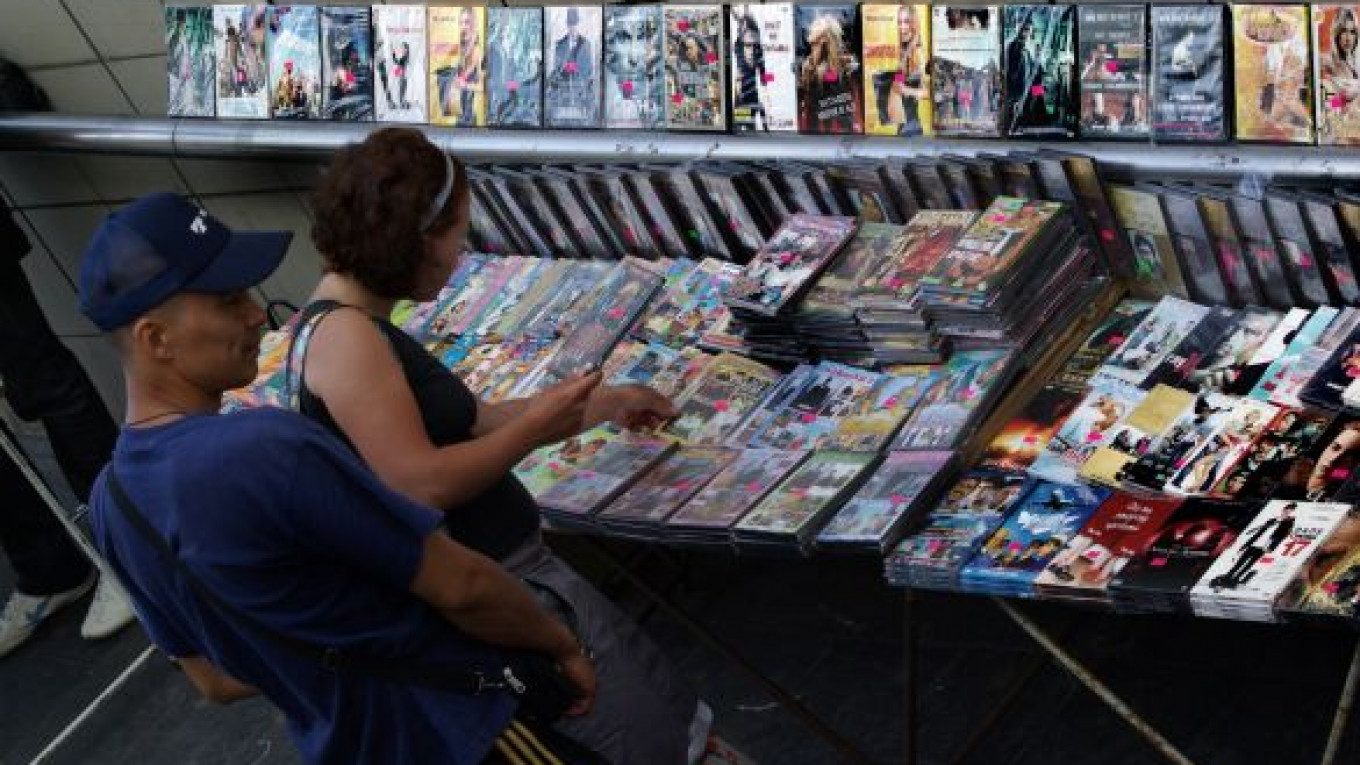A division of the United States Commerce Department on Monday put Russia on its annual listing of countries with the poorest intellectual property rights protection, for the 16th year in a row.
"While Russia made important progress in the past year to improve intellectual property rights protection and enforcement, significant concerns remain, particularly with respect to piracy over the Internet and enforcement generally," the U.S. Trade Representative said in a report.
Russia was praised in the report for establishing a court on intellectual property rights that will start operating in February 2013 and taking legal actions against infringing websites and social networks like Vkontakte.ru, which provide an environment for illegal file sharing.
Notably, Savyolovsky Market in Moscow is no longer regarded as the notorious piracy lair it once was, after measures were taken to prevent distribution of infringing goods, the report said.
"The violation of intellectual property rights is a problem that exists worldwide, and there are just a few countries, including the United States and Britain, where intellectual property rights are perfectly enforced," said Peter Necarsulmer, founder of the Coalition for Intellectual Property Rights.
The scale of the problem in Russia is really big, but the country "has made amazing progress, starting from less than zero in 1991 to having built an entire legal, administrative and civil court basis for dealing with various kinds of intellectual property — from trade marks to copyrights," said Necarsulmer, who is now chief executive of PBN Hill+Knowlton Strategies, a communications firm.
Poor protection of intellectual property rights had for a long time been among the major problems hampering Russia's accession to the World Trade Organization — which the country finally achieved late last year after 18 years of negotiations. As a WTO member, Russia will be required to comply with the trade club's rules on intellectual property protection, the report said.
The United States urged Russia to focus on combating distribution of illegal content on the Internet, which remains the major source of counterfeit software, films and music.
Russia should "address the problems of websites hosting infringing material and of services that are intended to promote the infringement of copyright" by developing appropriate legislation and setting liability standards in a measure that would "provide for the swift removal of infringing content," the report recommended.
Up to 90 percent of illegal software in Russia is downloaded from the Internet, with the remainder being sold on CDs or loaded onto flash drives by salespeople, according to Russky Shchit, a nongovernmental organization fighting computer piracy and violations of intellectual property rights on the Internet.
But the major priority for Russia is ensuring that investigations are conducted properly and court trials are held, as a number of industries dealing with intellectual property rights "face serious challenges" due to poor enforcement practice.
"Even where raids are conducted in a sustained and vigorous manner, investigation of cases, prosecutions and criminal verdicts do not necessarily follow," the U.S. report said.
Russia's legislation on intellectual property is "far from being ideal," but lack of enforcement efforts remains the major problem, which is common for the country's law enforcement system in general, said Irina Tulubyeva, managing partner at law firm Tulubyeva, Osipov & Partners.
"Intellectual property can't be considered separately. … Legitimate business in Russia, in general, operates under difficult conditions," she said by telephone.
Another reason why piracy is thriving across the country, Tulubyeva said, is the lack of lawful culture among people, with intellectual property protection being considered insignificant for decades.
"Everyone understands that hijacking a car is against the law, but stealing a film is considered normal," she said.
More than a half of Russia's Internet users can't distinguish illegal media content, according to a survey conducted by the Public Opinion Foundation last year.
One of the major obstacles to legal distribution of content is the inability of users to afford it, the survey said, RIA-Novosti reported.
There are 12 other countries mentioned on the U.S. priority list as needing intellectual property protection improvement, including China, Canada, Chile, India and Ukraine.
Meanwhile, Spain and Malaysia were removed from the list after amending legislation and adopting regulations to combat piracy on the Internet, according to the report.
Russia has a chance to be removed from the list, Tulubyeva said. But for that to happen, the country needs to make its legislation more compliant with international norms, eliminate corruption in law enforcement agencies and work to increase their competence, she said.
The government should allocate more funding and human resources to dealing with the problem, Necarsulmer said, adding that fighting violations of intellectual property rights should also be set as a priority for law enforcement agencies.
"It's a matter of establishing priorities," he said.
A Message from The Moscow Times:
Dear readers,
We are facing unprecedented challenges. Russia's Prosecutor General's Office has designated The Moscow Times as an "undesirable" organization, criminalizing our work and putting our staff at risk of prosecution. This follows our earlier unjust labeling as a "foreign agent."
These actions are direct attempts to silence independent journalism in Russia. The authorities claim our work "discredits the decisions of the Russian leadership." We see things differently: we strive to provide accurate, unbiased reporting on Russia.
We, the journalists of The Moscow Times, refuse to be silenced. But to continue our work, we need your help.
Your support, no matter how small, makes a world of difference. If you can, please support us monthly starting from just $2. It's quick to set up, and every contribution makes a significant impact.
By supporting The Moscow Times, you're defending open, independent journalism in the face of repression. Thank you for standing with us.
Remind me later.






